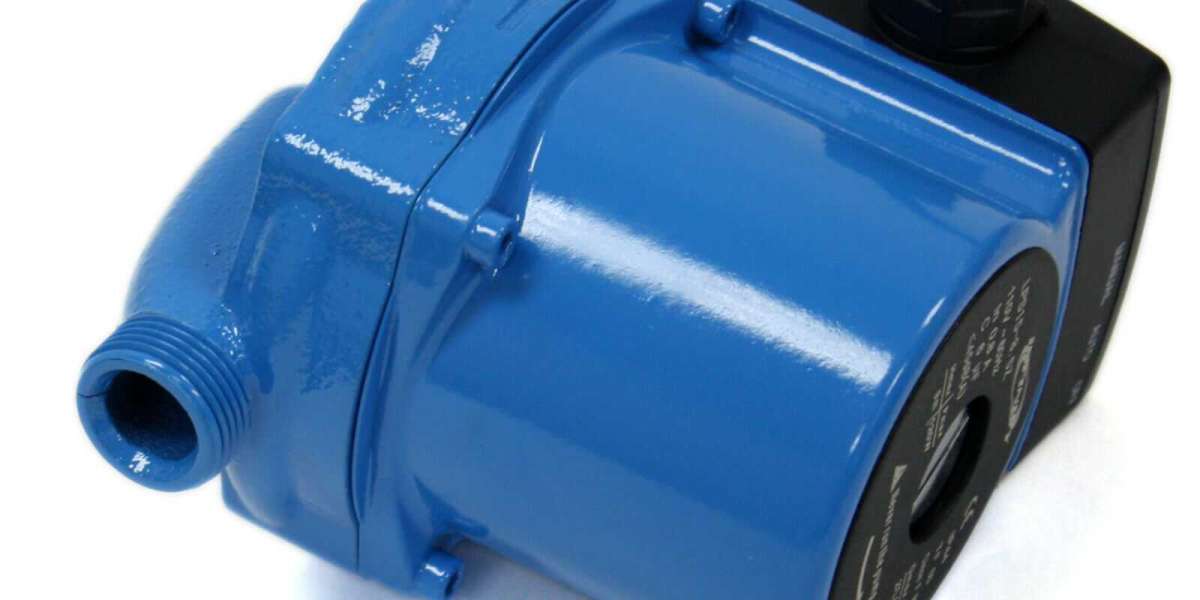In the realm of HVAC (Heating, Ventilation, and Air Conditioning) systems, coolant circulation pumps play a important role in ensuring efficient heat distribution and circulation within heating systems. Whether in residential, commercial, or industrial settings, coolant circulation pumps are important components that help optimize energy consumption, improve system performance, and enhance overall comfort. In this article, we delve into the features, benefits, and applications of coolant circulation pumps, with a focus on their role in heating systems.
Understanding Coolant Circulation Pumps for Heating Systems
Coolant circulation pumps, also known as circulation pumps for heating systems, are designed to circulate heated water or coolant through pipes, radiators, and other heat exchangers within a heating system. These pumps ensure a continuous flow of warm fluid, facilitating efficient heat transfer and distribution to different areas or zones within a building or structure. Coolant circulation pumps are commonly used in hydronic heating systems, where water or other fluids are heated and circulated through radiators, baseboard heaters, or underfloor heating systems to provide warmth and comfort.
Features and Benefits of Coolant Circulation Pumps
1. Efficient Heat Distribution:
- One of the primary benefits of coolant circulation pumps is their ability to facilitate efficient heat distribution within heating systems. These pumps ensure a steady flow of heated fluid, allowing for uniform heating of rooms or spaces and minimizing temperature variations. By circulating warm coolant through radiators, convectors, or underfloor pipes, coolant circulation pumps help maintain comfortable indoor temperatures and prevent cold spots or overheating.
2. Energy Efficiency:
- Coolant circulation pumps contribute to energy efficiency by reducing the energy consumption of heating systems. By circulating heated fluid efficiently, these pumps help optimize the performance of boilers, furnaces, or heat exchangers, allowing them to operate at lower temperatures and consume less fuel or electricity. This not only reduces energy costs but also minimizes environmental impact by lowering greenhouse gas emissions associated with heating operations.
3. Quiet Operation:
- Modern coolant circulation pumps are designed for quiet operation, with advanced motor technology and noise-reducing features that minimize vibrations and sound levels. This ensures a quiet and comfortable indoor environment, free from the noise and disturbance often associated with traditional heating systems. Whether installed in residential homes, office buildings, or commercial facilities, coolant circulation pumps provide silent and unobtrusive operation, enhancing occupant comfort and satisfaction.
4. Variable Speed Control:
- Many coolant circulation pumps are equipped with variable speed control capabilities, allowing for precise adjustment of flow rates and pump speeds based on heating demand or system requirements. Variable speed pumps can automatically modulate their performance to match changing heating loads, optimizing energy efficiency and reducing operating costs. By adjusting pump speed in response to fluctuations in temperature or demand, these pumps ensure consistent comfort and minimize energy waste.
Applications of Coolant Circulation Pumps
1. Residential Heating Systems:
- Coolant circulation pumps are commonly used in residential heating systems, including hydronic heating systems, radiant floor heating systems, and traditional hot water heating systems. These pumps circulate heated water or coolant through pipes, radiators, or underfloor tubing, providing efficient and consistent warmth to living spaces while maximizing energy efficiency and comfort.
2. Commercial and Industrial Heating Systems:
- In commercial and industrial settings, coolant circulation pumps are important components of HVAC systems, boilers, and process heating systems. These pumps ensure reliable heat distribution and circulation in large buildings, warehouses, manufacturing facilities, and industrial processes, helping maintain greattemperatures for comfort, productivity, and equipment performance.
3. Renewable Energy Systems:
- Coolant circulation pumps play a important role in renewable energy systems such as solar thermal heating systems, geothermal heat pump systems, and biomass heating systems. These pumps facilitate the circulation of heat transfer fluids, such as glycol, water, or thermal oil, between solar collectors, heat exchangers, storage tanks, and distribution networks, enabling efficient harnessing and utilization of renewable energy sources for heating purposes.
Conclusion: Optimizing Heating Systems with Coolant Circulation Pumps
In conclusion, coolant circulation pumps are important components of heating systems, providing efficient heat distribution, energy savings, and comfort in residential, commercial, and industrial settings. With their advanced features, quiet operation, and variable speed control capabilities, coolant circulation pumps optimize the performance of heating systems while minimizing energy consumption and environmental impact.
By investing in high-quality coolant circulation pumps, building owners, facility managers, and homeowners can enhance the efficiency, reliability, and comfort of their heating systems, ensuring consistent warmth and satisfaction throughout the year. Whether as part of a hydronic heating system, renewable energy installation, or industrial process, coolant circulation pumps play a important role in maximizing the benefits of modern heating technology and promoting sustainability in heating operations.








